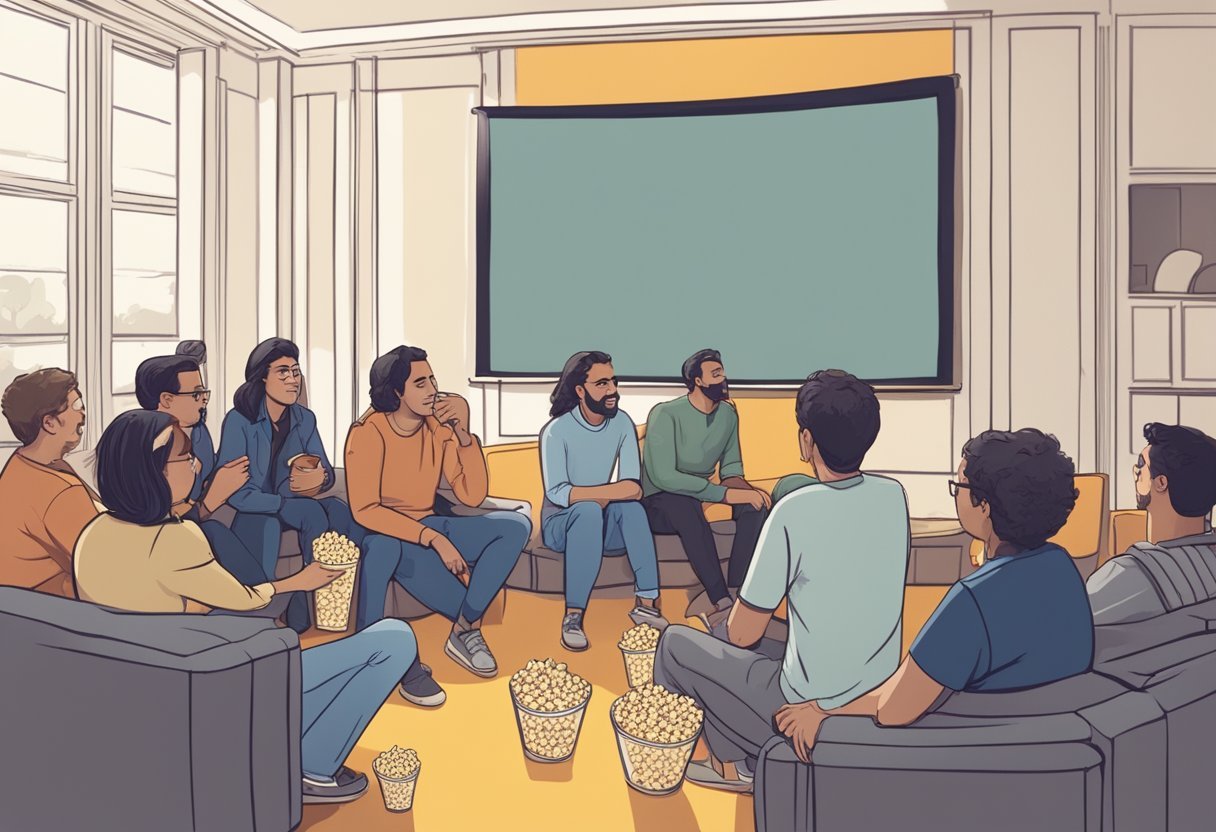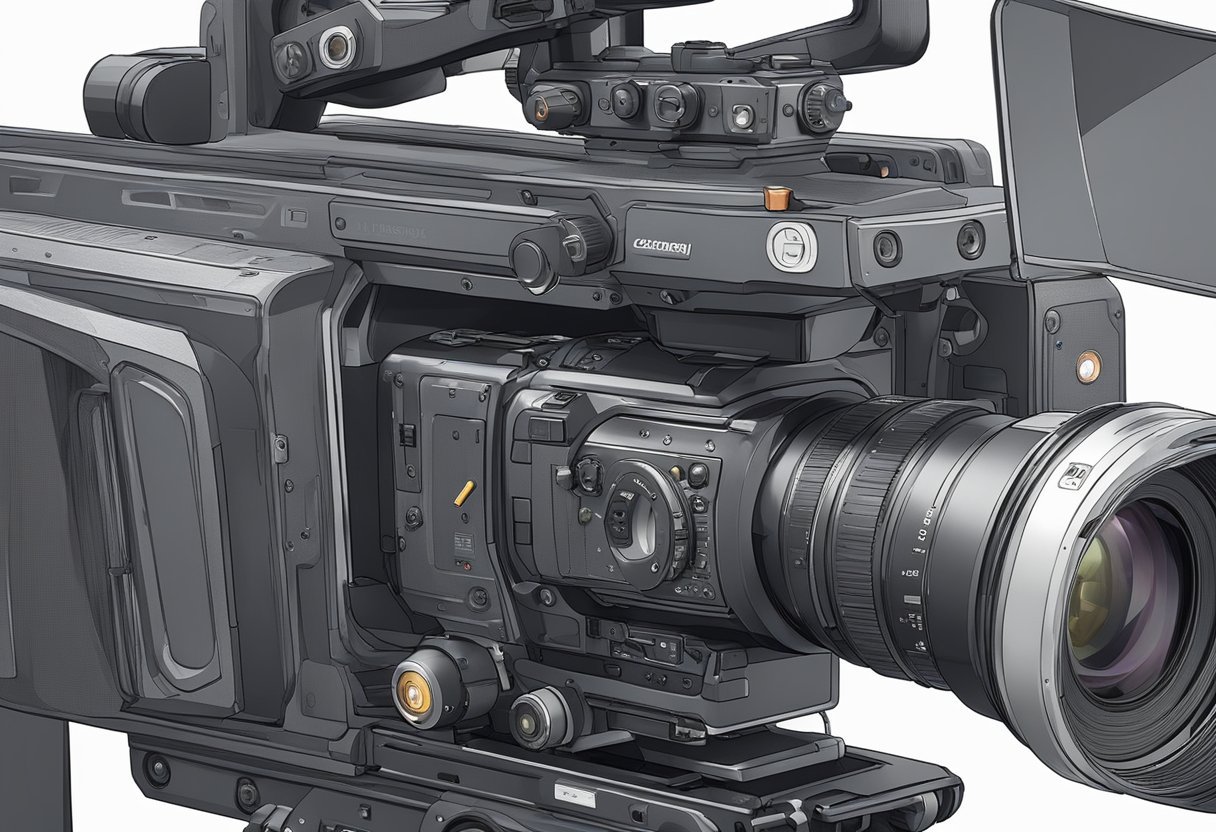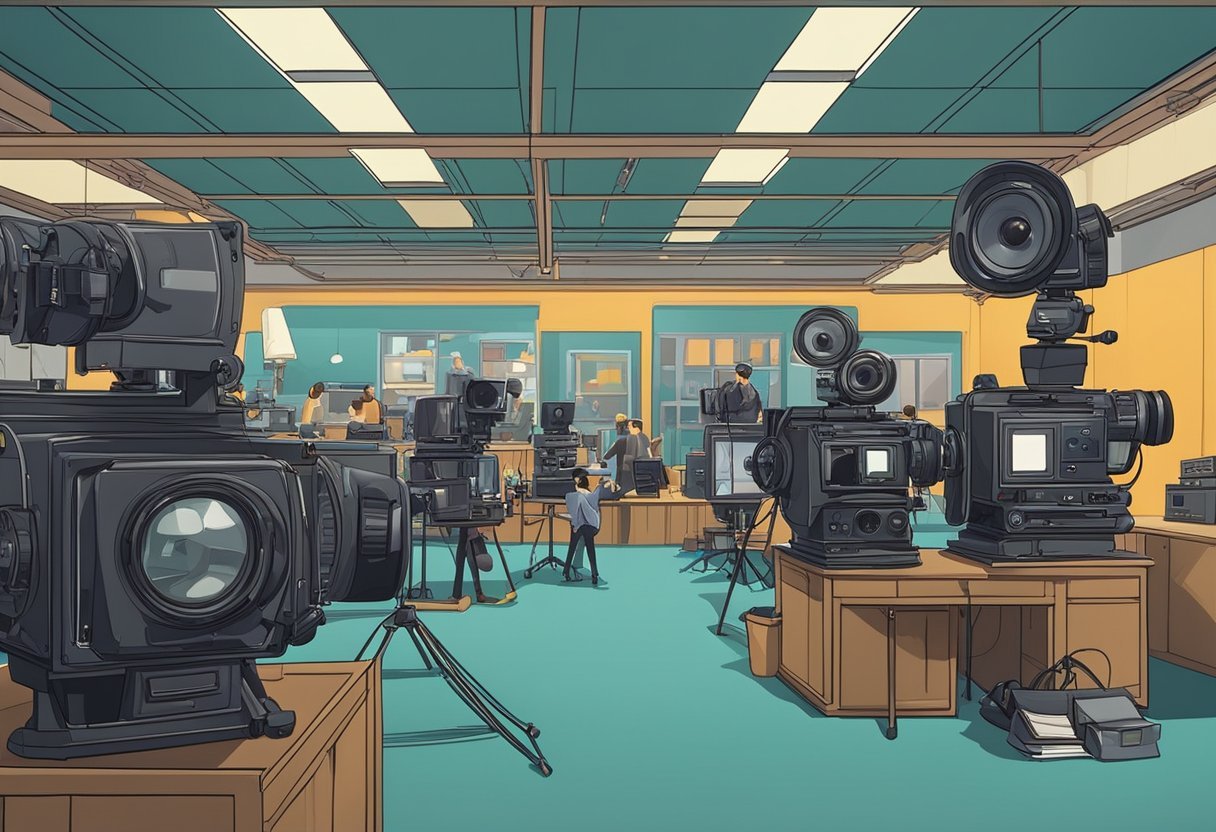Tomorrow’s Filmmakers offers a comprehensive online filmmaking course designed for aspiring filmmakers of all ages. With over 1,000 video lessons, it promises to teach everything from scriptwriting to final editing. It’s an attractive option for those wanting to break into the film industry without attending traditional film school.

The course is structured to guide students through every aspect of film production. It covers essential techniques and tools used by professionals. The program also provides insights from experienced filmmakers, making it a valuable resource for learning real-world skills.
By joining Tomorrow’s Filmmakers, students join a community of like-minded individuals. This community offers support, feedback, and collaboration opportunities. It also includes regular updates and new content to keep learners up-to-date with industry trends.
Exploring Tomorrow’s Filmmakers

Tomorrow’s Filmmakers offers a camera-to-screen journey for aspiring filmmakers, blending education with practical skills. It promises a comprehensive filmmaking course through a Christian lens.
Overview of the Online Course
Tomorrow’s Filmmakers provides an online course aimed at budding filmmakers. Focused on building fundamental skills, the program includes modules about cinematography, directing, screenwriting, and editing.
Courses are organized into bite-sized lessons, making it easier to digest information and practice new skills. The platform also allows for flexible learning, so students can work at their own pace.
Visual and interactive elements, like video tutorials and quizzes, enhance the learning experience. The Christian film academy angle integrates faith-based principles with creative pursuits, which can be appealing to students looking for values-centered education.
In-Depth Analysis of Course Content
The course content in Tomorrow’s Filmmakers covers a wide range of topics crucial for any aspiring filmmaker. Modules include directing techniques, camera operations, and post-production processes.
Each topic is broken down into detailed, yet manageable, sections. Students learn through step-by-step guides that cover industry-standard practices. There’s a particular focus on hands-on learning, allowing students to apply theories in practical scenarios.
Additionally, the course addresses story development and scriptwriting, teaching students how to create compelling narratives. Guest lectures from industry professionals provide insider insights, enhancing the educational value.
Assessment of Educational Value
Tomorrow’s Filmmakers aims to offer high educational value by combining practical skills with theoretical knowledge. The Christian film academy aspect adds a unique perspective, integrating faith into the learning process.
The course sets clear learning objectives and provides resources that help students achieve real-world skills. Tools like progress tracking and feedback mechanisms ensure that students can monitor their improvement.
While it’s priced higher than some other online programs, the breadth of content, coupled with the specialized focus, justifies the investment. For students serious about both filmmaking and faith, Tomorrow’s Filmmakers delivers a comprehensive and engaging educational experience.
Technical Mastery in Filmmaking

Mastering the technical aspects of filmmaking involves understanding cameras and lenses, lighting techniques, and post-production editing skills. These areas are crucial for creating high-quality films.
Camera and Lens Insights
Choosing the right camera and lens is essential. Cameras like the Canon EOS R5 and Sony A7S III offer high-resolution images and excellent low-light performance. Lenses can change the look of a shot; for example, wide-angle lenses are great for landscapes, while telephoto lenses are perfect for close-ups.
Macro lenses allow filmmakers to capture detailed close-up shots. Prime lenses offer higher image quality but lack zoom. Zoom lenses provide flexibility, covering a range of focal lengths.
Consider frame rates; 24fps gives a cinematic look, whereas 60fps can be used for smooth slow motion. Properly understanding these elements will elevate the visual quality of your films.
Lighting and Composition Strategies
Lighting sets the mood and directs the audience’s attention. Using natural light can create realistic scenes, while artificial lighting like softboxes and LED panels provide control over intensity and direction.
Three-point lighting is a fundamental technique involving key light, fill light, and backlight. This setup creates depth and dimension.
Composition also plays a big role. The rule of thirds is a basic guideline, placing key elements along the lines and intersections of a 3×3 grid. This adds balance and interest to the shot. Symmetry and leading lines can also guide the viewer’s eye through the frame.
Post-production Editing Techniques
Post-production brings the film together. Editing software like Final Cut Pro X, Premiere Pro, HitFilm Express, and DaVinci Resolve are popular choices.
Basic editing involves cutting and joining clips, adding transitions, and adjusting color. Color grading improves the film’s aesthetic; DaVinci Resolve is specially known for its color correction tools.
Audio editing is crucial too. Ensuring dialogue clarity, adding sound effects, and music can greatly enhance the viewer’s experience. Master these techniques to create a polished and engaging film.
Creative Directions and Storytelling

Effective filmmaking relies heavily on strong creative vision and the ability to tell a compelling story. This section covers key aspects like scriptwriting, storyboarding, directing, cinematography, music, and audio to help filmmakers create engaging films.
Scriptwriting and Storyboarding Essentials
Good storytelling starts with a well-crafted script. Writers must understand character development, plot structure, and dialogue. Tools like beat sheets can keep the story organized.
Storyboarding translates the script into visual form. Each scene is sketched out, showing key moments. This helps directors and cinematographers understand the visual flow. It allows them to spot potential issues before actual filming begins.
Directing and Cinematography
Directing involves guiding actors and crew to bring the script to life. Directors must balance creative vision with practical constraints like time and budget. Communication is vital. Clear directions help actors and crew understand the story’s emotional tone.
Cinematography focuses on camera work. It includes framing, lighting, and camera movements. Good cinematography enhances storytelling by creating mood and atmosphere. Concepts like the rule of thirds and depth of field are used to compose visually appealing shots.
Music and Audio in Film
Music sets the tone for a film. Composers create scores that match the film’s mood. Music can build tension, evoke emotions, or provide relief. Audio elements like sound effects add realism. They make scenes more immersive.
Good audio recording and mixing are crucial. Poor audio can ruin an otherwise well-made film. Clean dialogue, balanced effects, and appropriate background music are key to a professional sound.
Building a Filmmaking Career

Building a successful career in filmmaking involves starting a videography business, exploring ways to make money, and creating a standout portfolio.
Launching a Videography Business
Starting a videography business requires planning and creativity. He or she needs to choose a name, register the business, and set up a website. Investing in good equipment, like cameras and microphones, is essential. Networking and building relationships with clients helps in gaining more projects. Attending industry events can provide valuable connections and learning opportunities.
Monetization and Passive Income Strategies
Filmmakers can make money through various methods. Offering services like shooting weddings, events, and corporate videos brings in steady income. Creating stock footage can generate passive income by selling clips on platforms like Shutterstock. They can also earn through online courses, teaching others filmmaking skills. Licensing footage and creating digital content for YouTube are other profitable options.
Creating a Dynamic Portfolio
A strong portfolio showcases a filmmaker’s skills. Including a variety of work, like short films, music videos, and commercial projects, demonstrates versatility. He or she should use a professional website to host their portfolio, making it easy for potential clients to view their work. Regularly updating the portfolio with recent projects is crucial to staying relevant in the industry.
Niche Filmmaking Opportunities
In niche filmmaking, opportunities arise from specialized areas such as weddings, corporate settings, and creative projects like music videos and short films. Each requires different skills and tools.
Wedding Cinematography and Event Filming
Wedding cinematography captures one of the most important days in a couple’s life. Filmmakers in this niche must have excellent storytelling skills and the ability to work under pressure.
They use high-quality cameras and drones to get stunning visuals. Editing is crucial to creating a beautiful, seamless video. Courses like the Wedding Cinema Course offer valuable tips and techniques.
Event filming extends to birthday parties, anniversaries, and corporate events. Flexibility and keen attention to detail are essential.
Corporate and Real Estate Video Production
Corporate video production includes making promotional videos, training materials, and internal communications. Success in this niche depends on clear messaging and high production values.
Real estate video production showcases properties for sale. Filmmakers use wide-angle lenses and drones to highlight the best features of homes and buildings. Calculated shots and smooth editing are crucial.
Courses such as the Product Video Cinema Course can enhance skills in creating engaging and professional videos for businesses.
Music Videos and Short Films
Creating music videos and short films involves a lot of creativity. Directors work closely with artists to bring their vision to life. Understanding music and storytelling is key.
Short films often explore unique stories and characters in a brief format. They allow filmmakers to experiment with styles and techniques.
Many turn to the Music Video Cinema Course for expertise in this domain, learning to balance artistic expression with technical proficiency. These projects serve as a proving ground for filmmakers looking to break into larger productions.
